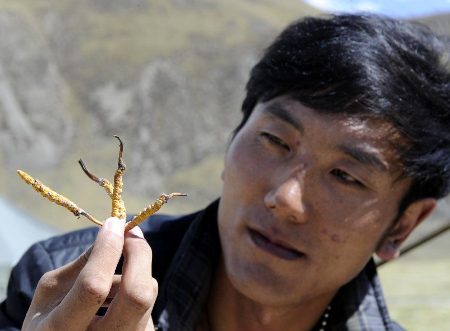NEWS
Government Authorities Demolish Homes, Expel Buddhist Nuns in Driru County, Tibet
 Protests have been a regular occurrence in Driru County, in the Tibet Autonomous Region. In this photo from 2013, security personnel assemble to subdue protestors. From ibtimes.co.uk
Protests have been a regular occurrence in Driru County, in the Tibet Autonomous Region. In this photo from 2013, security personnel assemble to subdue protestors. From ibtimes.co.ukLocal government authorities have demolished a number of Tibetan homes and appropriated their land, expelled 100 nuns from their nunnery, and banned Buddhist studies at a Bon monastery in Driru County, Naqu Prefecture, in the Tibet Autonomous Region of China, The Tibet Post reported.
The report cited unidentified sources as saying: “The local government head has expelled 100 Tibetan nuns from Gaden Khachoeling Nunnery in Pekar Township in Driru County, where a total of 200 nuns receive education . . .” (The Tibet Post) Speaking on condition of anonymity, the sources said that during a visit in September, local government officials had barred registered nuns over the age of 50 from remaining in the nunnery.
“The closure of monasteries, schools, and nunneries is not new in the region,” the sources said. “A Tibetan medical school built in the same county by Nyandak, a Tibetan monk in 2000, was forcefully closed down by Chinese authorities in 2007 because the school also taught Tibetan language to young Tibetans.” (The Tibet Post)
“Sangye Tashi, a local government official visited Pekar Township . . . for three days from September 27,” said Tenzin Rabten, a Tibetan living in exile, adding, “The farmlands in Sentsa or Yangshoe, another Township in Driru County, owned by local Tibetans are being appropriated, and many Tibetan homes have been demolished on local government orders.” (The Tibet Post) The unnamed sources said that Tibetans residents had been ordered to rebuild their houses in line with standards set out by the Chinese government, but are also required to bear the cost of demolition themselves.
“The 100 nuns who were expelled from the Nunnery have also been denied [permission to] travel to other areas to study,” Rabten said, adding that disobeying the order could result in the head of the village and family members being imprisoned and losing the right to harvest cordyceps for up to three years. (The Tibet Post) Cordyceps is a species of parasitic fungus, a variety of which germinates in the bodies of caterpillars. A sought-after ingredient in traditional Chinese medicine, many Tibetans make a living from harvesting the fungus.

Many Tibetans in Naqu Prefecture earn a substance living harvesting
cordyceps. From news.xinhuanet.com
“Only 49 of [the] remaining 100 nuns are registered. The [other] 51 nuns reportedly [have] no legal right to study and are now working at shops and guesthouses,” said Rabten. "Approximately 26 nuns were reportedly expelled from the nunnery last year. Nuns [over the age of] 50 are also not allowed to remain in the nunnery, even if already registered, and must join homes for elderly.” (The Tibet Post)
Rabten added that Ngotsar Phunstokling, an old Bon monastery in Pekar Township, had also been subject to restrictions by the local authorities. “They have now banned the study of Buddhist philosophy, which prefigures meditative practice at the monastery, where around 60 students receive higher Tibetan studies,” he said. (The Tibet Post)
Telecommunications, including Internet connections, in the county and surrounding areas had been severely restricted, except for those related to government offices and institutions, the unnamed sources said.
See more
China expels nuns, banns Buddhist studies and destroys homes in Tibet (The Tibet Post)














